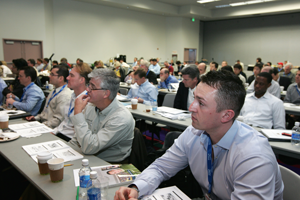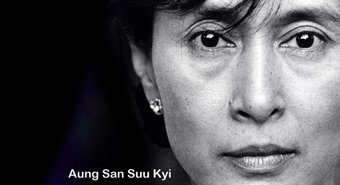Posts Tagged ‘Activism’
Say No To Hate: Teach Equality, Justice For All
Issue 163 — March 22, 2021
First and foremost, I stand and Take The Lead, as an organization, stands in solidarity with Asian Americans, and against the rising hate crimes and harassment against them.
Since hearing the terrible news of the murders of eight people, six of them Asian women, in Atlanta massage parlors on March 16, the words of the song from Rogers and Hammerstein’s 1949 musical South Pacific have been repeating in my mind.
Read More8 Ways to Be an Effective Leader for Change
Issue 132 — June 22, 2020
I first learned about the power of organizing to make change when I was about 15 years old. In the small town of Stamford, Texas, where I lived at the time, there were two short order restaurants in town. One was called Son’s City Pig and it had indoor tables with juke boxes where we kids could sit and kibitz, as teenagers do. And as teenagers were inclined to do, we created various fads. One was eating our French Fries with mustard. OK, I admit I started that one.
Read MorePodcast Episode 010: Kathleen Turner’s 3 Most Powerful Leadership Lessons
In this episode, President & Co-Founder of Take The Lead Gloria Feldt shares what she’s learned from one of her treasured friends — actor/activist, Kathleen Turner.
Read MoreShe's Doing It: IntergenFem and You…Join In!
Look who picked me up. Come join us and tweet your opinions at the #InterGenFem tweet chat 1/31 at 2pm eastern. Read the details below:
Intergenerational feminism.
Does it exist? Can we do a better job?
Why does working together across differences (generation is just one of many, including race, class, gender, sexuality, ability) matter for the cultural and political goals feminists are looking to achieve?
These conversations keep happening, and the idea for this TweetChat grew out of a great conversation that happened spontaneously on Twitter between @AndreaPlaid, @erintothemax, @ShelbyKnox, @StephHerold, @veronicaeye and @WentRogue. Along the way we picked up @GloriaFeldt and now we’re hoping to pick up YOU (yes, YOU are enthusiastically invited!) to join us for a broader conversation that is intended to be productive, solutions-oriented and totally helpful to your personal and professional endeavors to realize justice in this lifetime.
Some of the themes to discuss:
- 1. “Young feminism” – what does it mean?
- 2. Organizational feminism – what is and isn’t connecting with different age groups?
- 3. How does race and racial privilege intersect with intergenerational issues in the movement?
- 4. What is the unfinished business of feminism?
- 5. What does sharing power look like?
- 6. What can we all do to better support each other?
Is there more that needs to be discussed? Good. That’s another reason for you to join, so you can bring it up.
TweetChat is Thursday, Jan. 31. Use the hashtag #InterGenFem.
#InterGenFem + YOU = Join In!
Be there 2-3 p.m. and tell your friends.
Read MoreShe’s Done It for 40 Years: Ms. Magazine Honored for Auspicious Anniversary
When did you first see Ms. Magazine?
I can’t recall exactly the first time I saw it, but I do remember subscribing to it soon after it launched in 1972. I lived in Odessa TX, not exactly the bastion of feminism. But within the pages of Ms., I found women from all over the country saying what I’d been thinking. And I realized I wasn’t alone in feeling that something was terribly unfair about the way women were treated in society.
I also learned about the National Organization for Women from Ms. I joined as an at-large member and located the other five or six at-large members within a 100-mile radius.
Read MoreI'm Doing It: Wireless Activism for Social Change
Being an activist does not always mean being political. Recently, I served as the moderator for a panel of media innovators who discussed how wireless technology is bringing about social change.
 It was exciting to explore the tools currently being used, invented and dreamed of to create a better world at CTIA Wireless 2012, the international wireless association conference in New Orleans. CTIA hosts this premiere industry conference for wireless, telecom and broadband as well as the key vertical markets that have entered into wireless. Forty thousand service providers, manufacturers, developers, retailers, enterprise end-users and media attend the conference.
It was exciting to explore the tools currently being used, invented and dreamed of to create a better world at CTIA Wireless 2012, the international wireless association conference in New Orleans. CTIA hosts this premiere industry conference for wireless, telecom and broadband as well as the key vertical markets that have entered into wireless. Forty thousand service providers, manufacturers, developers, retailers, enterprise end-users and media attend the conference.
The all-woman panel on “Wireless Activism”, presented by the Women’s Media Center, focused on how wireless tools are used by activists to create local and global transformation.
(Click here to read the full article)
Read More
She’s Doing It: Lily Finds Women Revolting and a 9-Year-Old Feminist
You met Lily Womble in last week’s She’s Doing It and learned that she attended the AWID (Association for Women’s Rights in Development) international forum in Istanbul.
There, she recorded video interviews with a number of women from around the globe. Besides the two in this post (watch them to learn what the post title means), you can see more on Lily’s YouTube channel.
Now back in college in Mississippi, 19-year-old Lily reflected on her experience:
Read MoreShe's Doing It: Jamia Wilson Learns Resilience and Power of Inter-generational Bonds
I’m a little biased about Jamia Wilson having had the pleasure of knowing her and working with her as we both went through several career transitions during the last decade.
She’s an inspiration to me because of her seamless commitment to social justice and her positive way of putting her ideas into action.
Her responses to my questions continue the series in which I ask people I interviewed for No Excuses what they’ve learned since then. You can connect with Jamia on Facebook and Twitter.
Gloria Feldt: In No Excuses, I asked, “When did you know you had the power to _____?” What have you learned about your power to _____ during the past year or so?
Jamia Wilson: In the past year or so, I have learned so much about faith and perseverance. I have faced many triumphs and challenges during a transitional time in my life and have learned so much.
The rough edges and moments where I stared fear in the face taught me about the importance of courage and authenticity above all else. I have learned that I have the power to choose to be who I am authentically without apology and let that guide me towards realizing my dreams and my highest power.
As Janis Joplin said, “Don’t compromise yourself, you’re all you’ve got”. 2010-2011’s greatest gift to me was an appreciation for my own resilience and that to me is one of my most sacred superpowers.
GF: Was there a moment when you felt very powerful recently?
Read MoreShe’s Doing It: What Courtney Martin Learned This Year
Read MoreWhen I speak on college campuses, I score points with students when they find out I know Courtney Martin, author, among several books, of Perfect Girls, Starving Daughters and Do It Anyway. Though she’s the youngest of the four of us on the WomenGirlsLadies intergenerational feminist panel, she is usually the most together. The one who knows where we’re supposed to be when, gets the power point together, and remains calm when things go awry.
Follow Courtney @courtwrites and find her commentaries on The American Prospect and many other publications. Courtney is the Founding Director of the Solutions Journalism Network, along with New York Times columnist David Bornstein. In addition, she is the leader of the Op-Ed Project’s Public Voices Fellowship Program at Princeton University–coaching women academics to become part of public debate. She is a partner in Valenti Martin Media, a communications consulting firm focused on making social justice organizations more effective in movement building and making change and is an Editor Emeritus at Feministing.com.
Here’s what Courtney says she learned since I interviewed her for No Excuses:
Aung San Suu Kyi Says Value Change Over Regime Change
“Regime change can be temporary, but value change is a long-term business. We want the values in our country to be changed.”
As a contemporary figure making women’s history, Daw Aung San Suu Kyi reflects the kind of ‘power-to’ leadership which is truly earth shattering.
“Regime change can be temporary,” she says, “but value change is a long-term business. We want the values in our country to be changed. “
Winner of the Nobel Peace Prize in 1991 Daw Aung San Suu Kyi is the leading pro-democracy opposition leader in Myanmar, formerly known as Burma, one of the world’s most isolated and repressive nations.
Since a military junta grabbed power of the country in 1962, it has secured its power by rigging elections and suppressing opposition. Ms. Aung San Suu Kyi spent 15 of the last 20 years under house arrest after her party, the National League for Democracy, won an overwhelming victory in the 1990 elections but was denied power. In November 2010 elections, Myanmar’s main military-backed party won in a vote again engineered to assure the military’s continued grip on power. The National League of Democracy boycotted this election and called it what it was—undemocratic.
Ms. Aung San Suu Kyi—who was released from house-arrest November of 2010—and her party, the National League for Democracy, have chosen to participate in elections this time around. On April 1 of this year, Suu Kyi and other pro-democratic candidates will run for 47 of the 48 open seats in Parliament.
Her campaign speech, which will appear on National TV, will mark the first time the Nobel Peace laureate has been given the opportunity to use state media to promote her party’s platform. She calls for amending the 2008 constitution,
Read More



